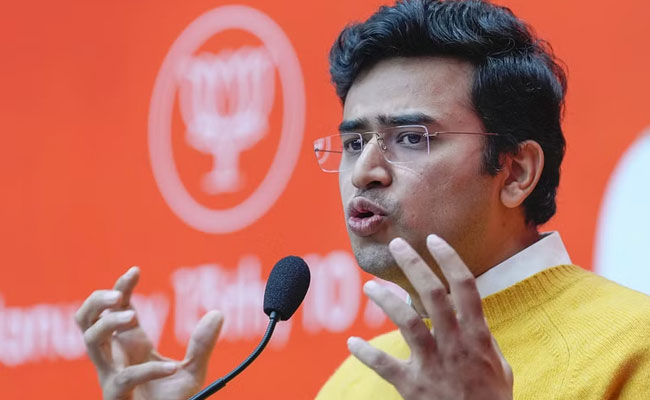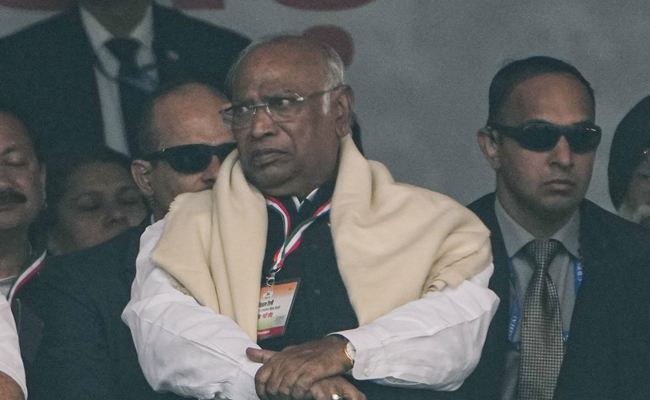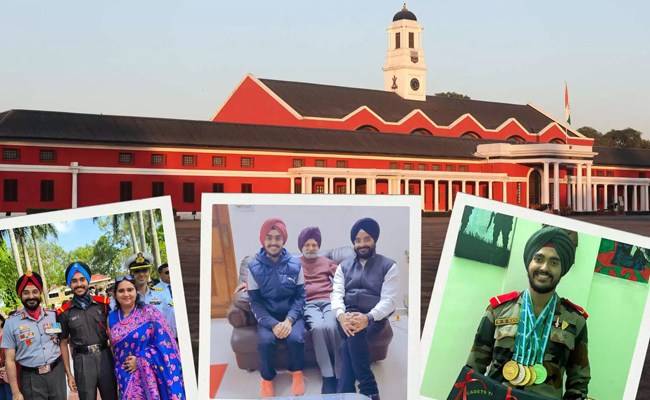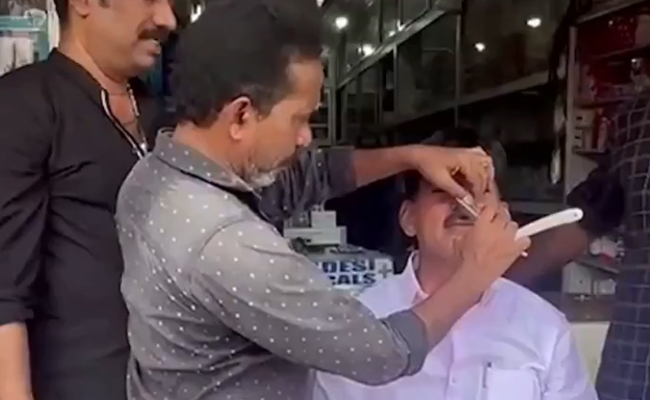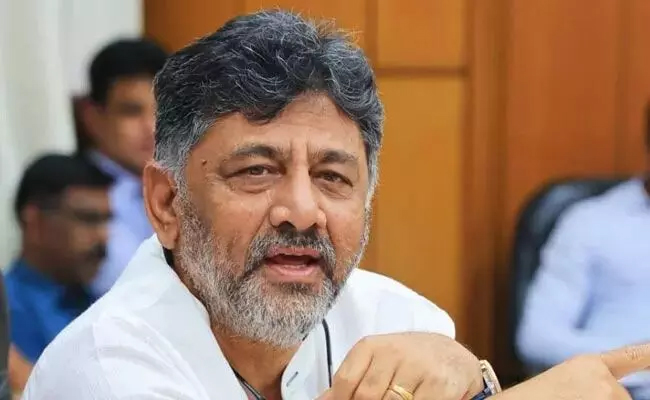Bengaluru (PTI): Member of Parliament from Bangalore South Tejasvi Surya has said Prime Minister Narendra Modi has not only waged a war against dynastic politics, but has also democratised the country's economic space in the last ten years. Calling Congress leader Rahul Gandhi a "dynast", the Bharatiya Janata Yuva Morcha President said he is something today, only because of the fact that he has inherited his parents and family's monetary as well as political legacy.
"A dynast like Rahul Gandhi, can only view the country's economy from the lens of entitlement, from the lens of dynasty. What has happened over the last ten years is that the Prime Minister has not only waged a war against a dynasty in politics but he has also democratised the country's economic space in the last ten years, thanks to the multi-dimensional effort the government has made to formalise the country's economy," Surya told PTI video.
He was responding to a question on the Congress' narrative that the Modi government is in the hands of a few crony capitalists.
Pointing out that today one can find first generation billionaires in India who do not inherit a business legacy, he further said, "But for Rahul Gandhi, who is something today only because of the fact that he has inherited his parents and family's monetary as well as political legacy, he is not ready to acknowledge and recognise the democratisation of the country's economy."
The first generation millionaires and billionaires coming up in India are higher than any time in the past seventy years, Surya said as he questioned "How can you make this absurd allegation that this country and the country's government is supporting one or two generational entrepreneurs?"
"How can one accuse this government of crony capitalism when it is empowering, encouraging young people with strong dreams, who are hardworking, and have the ability to go and build unicorns," he asked, while noting that India has positioned itself as a very strong entity in geopolitics.
Highlighting that the Prime Minister has on multiple occasions made it very clear that the third term of the Modi government is the most important term insofar as laying the foundation for a "Viksit Bharat" is concerned, the MP said, the next five years are going to be a multi-dimensional transformation at a much faster pace and a more accelerated pace than what we have seen the last five years of the Prime Minister.
Do not be surprised if Karnataka gives a clean sweep to the BJP, to Narendra Modi in the general elections, he further said, as he accused the Siddaramaiah-led Congress government in the state of corruption and being bankrupt.
Responding to a question on the Karnataka government's bill that sought to collect funds from temples with over Rs 10 lakh annual income, Tejasvi asked, Why should the government, which claims to be secular, be in the business of running temples for a very long time?
"Personally, my position has been that the government, whichever party it may be, whichever state it may be, must not directly involve itself in the business of running religious institutions if it claims to be a secular government.
In Karnataka, while the government does not involve like this with respect to religious institutions of any other denominations, this interference is seen only with respect to Hindus so my personal position on this is that the Karnataka Hindu Religious Institutions and Charitable Endowments Act itself must be revisited and repealed, and the government must not involve itself in the business of running religious institutions of the Hindus," he added.
Claiming that the Modi government has done more to protect the interests of the country's farmers than any other government earlier, the MP in response to a question, while highlighting various measures taken by the Centre said, "The argument that the government is anti-farmer is not bought by the farmers themselves."
Summing up his journey in the last five years as an MP from Bangalore South, Surya said it has been a very big learning experience for him and has made him more humble and more hopeful.
"I know it has given me more energy to contribute much more to the city and to the country," he said, as he expressed gratitude to the people of his constituency and the city for giving him this opportunity to serve the city.
Let the Truth be known. If you read VB and like VB, please be a VB Supporter and Help us deliver the Truth to one and all.
New Delhi (PTI): Congress president Mallikarjun Kharge on Sunday launched a scathing attack on the BJP, saying those indulging in "vote chori" are "gaddars" and need to be removed from power to save the voting right and the Constitution.
Addressing the party's 'Vote Chor Gaddi Chhod' rally at the Ramlila Maidan here, Kharge said it is the duty of all Indians to unitedly strengthen Congress ideology as only this party can save the country.
He alleged that the RSS ideology will "finish the nation".
ALSO READ: Rally against "vote chori" to protect every citizen's right, says D K Shivakumar
"The BJP people are 'gaddars' (traitors) and 'dramebaaz' (indulge in theatrics). They need to be removed from power," Kharge said.
The Congress president also said that he did not go for his son's operation in Bengaluru and stayed to attend the rally as he thought it was important "to save 140 crore people".
#WATCH | Delhi | Congress President Mallikarjun Kharge says, "The leaders of the BJP only do drama...Some BJP leaders were questioning whether, after the Parliament session, Rahul Gandhi is going abroad. During the Parliament session, PM Modi never attends the session but goes… pic.twitter.com/DMa5nAyc3Z
— ANI (@ANI) December 14, 2025

